Working with an expanded view of the curatorial—from making collections to simply making connections—we invite artists, cultural workers, students and community members to join in this week-long free event, through discussions, performances, exhibitions and workshops. The Summer Institute is anchored by conversational panels that tentacle out to workshops, artist performances, read-ins and a family program, all located at Agnes the first four days. The final day takes place at the neighboring Feminist Art Residency (FAR), bringing participants outside the institution.
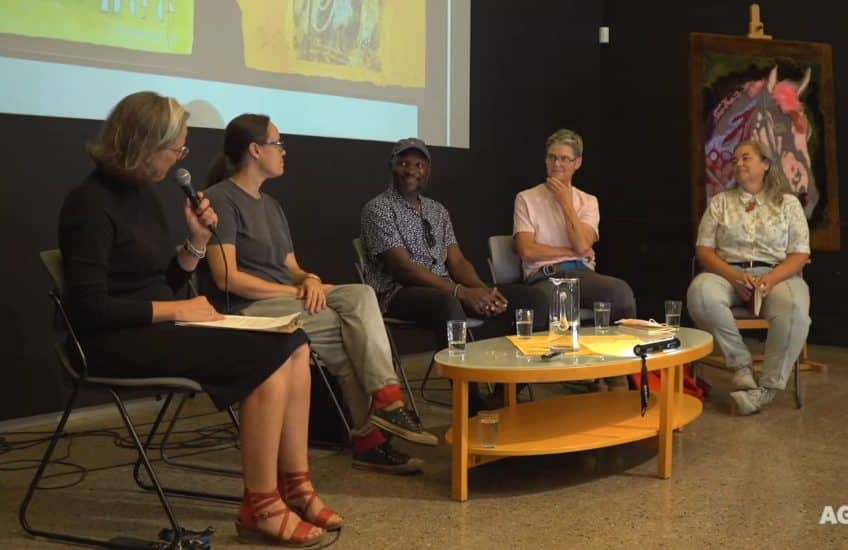
Anong Beam, Chaka Chikodzi, and Deirdre Logue and Allyson Mitchell; Moderator: Alicia Boutilier
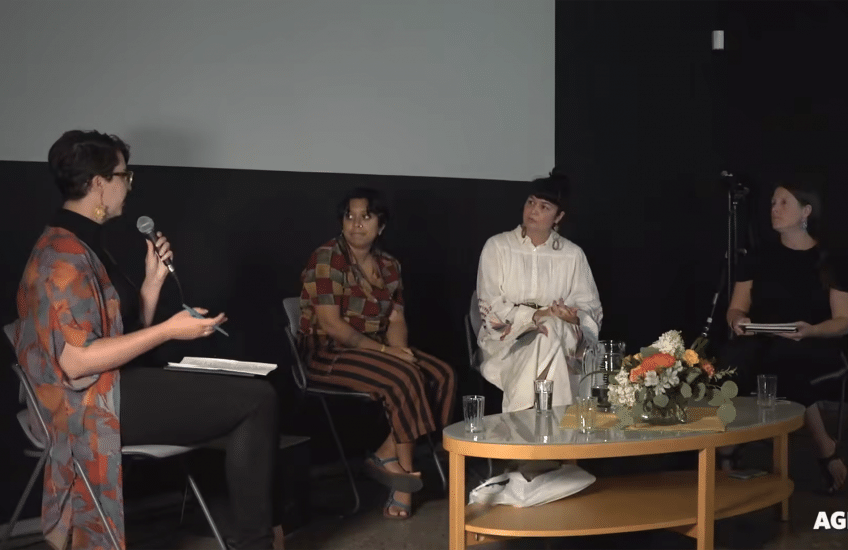
Aarati Akkapeddi, Brandie MacDonald and Chao Tayiana Maina; Moderators: Danuta Sierhuis and Jennifer Nicoll
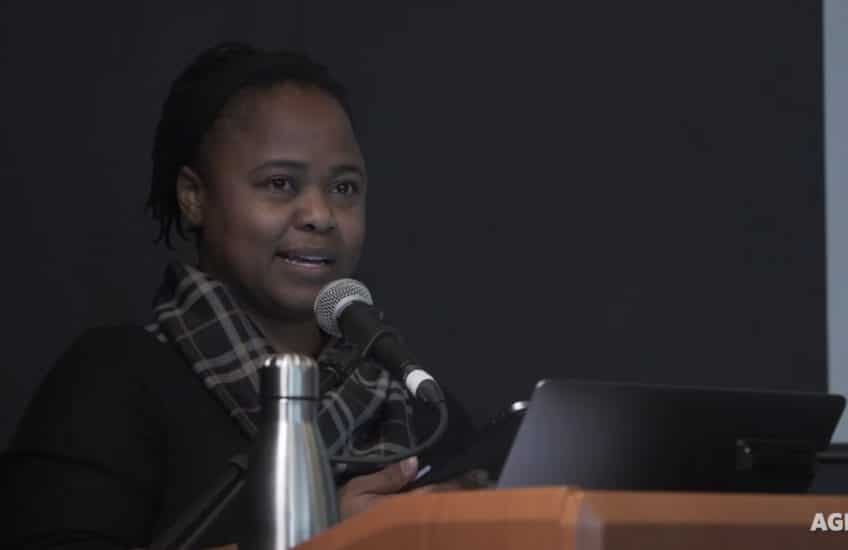
Julianna Ribeiro de Silva Bevilacqua, Nomusa Makhubu, Carolina Manoel and Romuald Tchibozo; Moderator: Qanita Lilla
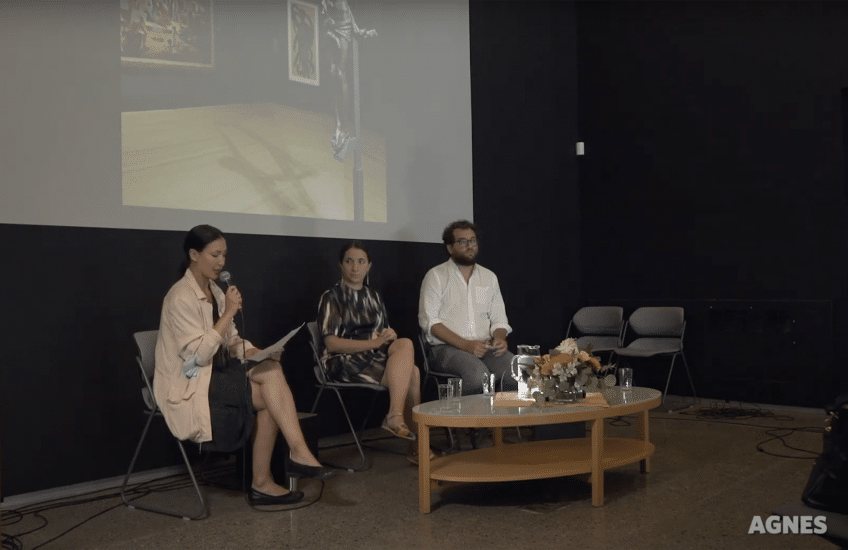
Adam Harris Levine and Diva Zumaya; Moderator: Suzanne van de Meerendonk
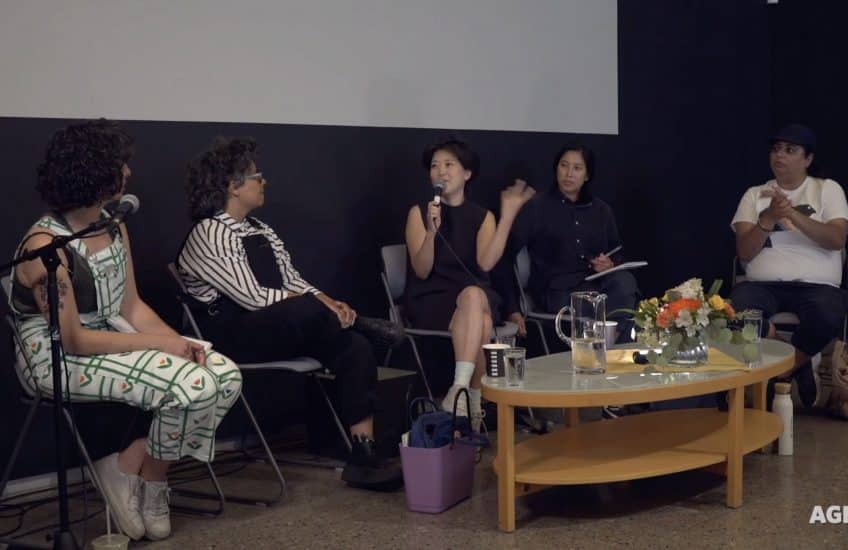
Emelie Chhangur, Bopha Chhay, Pamila Matharu and Maiko Tanaka; Moderator: Nasrin Himada
Emelie Chhangur, Bopha Chhay, Pamila Matharu and Maiko Tanaka; Moderator: Nasrin Himada
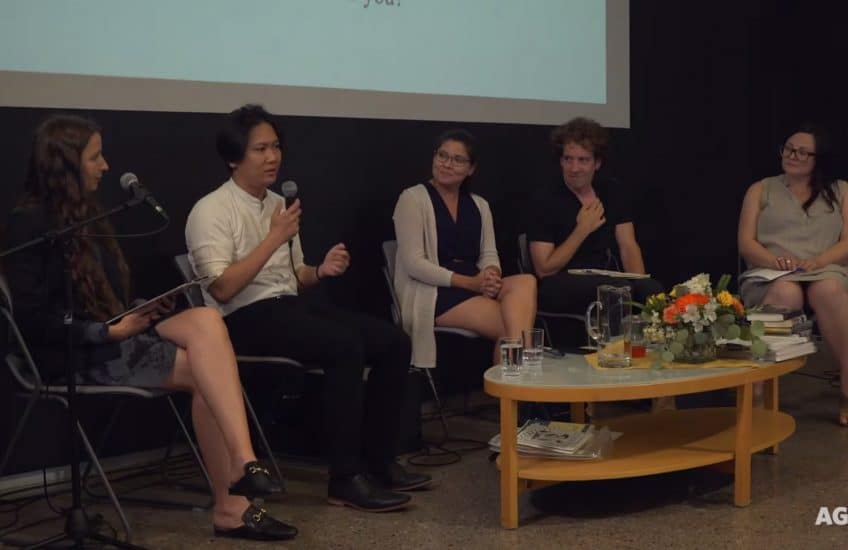
Vince Ha, Toby Lawrence, Neven Lochhead and Paige Van Tassel; Moderator: Elyse Longair
2–5 pm, Agnes, André Biéler Studio
Count + Care Family Program
Sign up is separate for this program.
Emebet Belete, Maddi Andrews and Charlotte Gagnier
Creation Station is a free studio program designed to give families and children ages 2 and up an exploratory artmaking experience. Art educators ignite curiosity through painting, drawing, clay and mixed media activities.
2–2:45 pm, Meet in the Atrium prior to the tour
Guided Tour
Gain a new perspective and understanding of Etherington House, Agnes’s own institutional history, our current Rehoming Agnes series and what the future holds in Agnes Reimagined. Join us for this free, in-person tour led by Alicia Boutilier, Chief Curator, Curator of Canadian Historical Art.
9:30–10 am, Agnes, David McTavish Art Study Room
Welcome and Refreshments
Emelie Chhangur, Director and Curator, Agnes Etherington Art Centre
Audio Player
10–11:30 am, Agnes, Outside
Performance, Along the Way: Decolonial Ecologies Playgroup
JP Longboat, with Shelby Lisk
Artist JP Longboat (Mohawk, Turtle Clan from Six Nations of the Grand River) takes participants through the current project Along the Way: Decolonial Ecologies Playgroup and its developing methods of land-based creative process and reciprocal collaboration. Longboat writes that the project is “activated by re-traveling, re-connecting, and re-telling with our First Nations history of these territories (Eastern end of Lake Ontario and the lower Saint Lawrence), places of community, of resource gathering/trade and ceremony.” Forming a partnership with Agnes, an ecological research station and the city, the project assembles a group of artists to, for Longboat, “re-make the relationships with what sustains us and unearth the stories, and find creative expression for their telling as we embody the stewardship of our oral legacies.”
11:30 am–12 pm, Agnes, David McTavish Art Study Room
Refreshment Break
12–1 pm, Agnes, Outside Etherington House
A Collective Read-In, Robin Wall Kimmerer’s Gathering Moss: A Natural and Cultural History of Mosses (Excerpt)
Sebastian De Line
Situated outside the historical home of Agnes Etherington, encircling Anne Riley’s dark matter garden, this program invites artists, community members, students and scholars to participate in a collective read-in of chapters “City Mosses” and “The Web of Reciprocity: Indigenous Uses of Moss,” in Gathering Moss: A Natural and Cultural History of Mosses by Robin Wall Kimmerer (2003). Feel free to bring your lunch.
1–2:30 pm, Agnes, Atrium
Conversational Panel, Count + Care: Collections
Anong Beam, Chaka Chikodzi, and Deirdre Logue and Allyson Mitchell
Moderator: Alicia Boutilier
In 1968, Agnes Etherington Art Centre published its first and only catalogue of “The Permanent Collection,” authored by curator emeritus Frances K. Smith. Since then, the collection has grown to over 17,000 works of art. Count + Care considers legacies of collections, and what that curatorial inheritance and accountability entails. It also speculates on how ongoing collection care can be a loving undoing. In conversation with artists Anong Beam, Chaka Chikodzi, and Deirdre Logue and Allyson Mitchell about the care of their work in Agnes’s collection, we reflect on what it means, or should mean, to have artworks become part of an art museum.
2:30–3 pm, Agnes, David McTavish Art Study Room
Refreshment Break
3–5 pm, Agnes, Outside
Workshop, A Manifesto for Radical Care (i. Set and respect boundaries)
Tian Zhang
Over five days, we read and discuss the text, A manifesto for radical care or how to be a human in the arts. Recently published in Sydney Review of Books online, and produced at Agnes in print, this manifesto is a provocation for reimagining how we relate to each other, to work and the arts. Each day we focus on a different point of the manifesto and talk about how we can practice this within our own ecosystems. Attend all days or join on any day.
Agnes, André Biéler Studio
Workshop, Beam Paints
Anong Beam
Sign up is separate for this program
The Studio is a place to meet innovative practicing artists from Kingston and across Canada, hear about their work and artistic practice and explore a creative project together. Join Anong Beam as she leads a painting workshop with Beam Paints. Beam Paints is the result of a multi-generational love of pigment, paint, colour, and innovation. Anong was raised by her artist parents, Carl Beam and Ann Beam, and was taught from a young age how to harvest hematite pigment in the LaCloche mountain range near their home in M’Chigeeng First Nation on Manitoulin Island. Beam Paints draws on Anong’s early educations in Indigenous pigment and expands it to encompass all paint traditions. This workshop is preceded by Count + Care: Collections, a conversational panel with Anong Beam, Chaka Chikodzi, and Deirdre Logue and Allyson Mitchell from 1 to 2:30. We invite you to attend this prior to The Studio. This program is made possible by the Rita Friendly Kaufman fund.
6–7 pm, Art and Media Lab, Isabel Bader Centre for the Performing Arts
(390 King St W)
Opening, Museums Without Walls Exhibition
7–9 pm, Agnes
Celebration Gathering at Agnes
Agnes Summer/Fall Exhibitions + An Institute for Curatorial Inquiry + Museums Without Walls (MWW)
Performance, Place in Time 3: AE (MWW)
Ana Valine
Hand processing celluloid film with plants is referred to as eco-processing. Artist Ana Valine selects specific plants around Agnes, both the original house and the current gallery, to process a roll of 16mm film. The filming documents the gallery extension as it exists today, and the image that emerges in the frame is made with the plants that surround the building. This filmmaking involves matter present within the frame to develop the image: a kind of self-portrait of Agnes, by Agnes. This method of filmmaking with natural elements is unpredictable as each plant has its own combination of properties that affect the emulsion, sometimes resulting in no image at all. After developing in the plant brew, the film is immersed in a saltwater fixative for three days. Valine’s method of making films uses no chemicals and she has recently been brewing the developer at the same site as filming, making her method completely self-reliant and portable. Should an image of Agnes emerge, it will be projected on the side of the gallery.
9:30–10 am, Agnes, David McTavish Art Study Room
Welcome Refreshments
10–11:30 am, Agnes, Atrium
Conversational Panel, Media Museums: Past and Future (MWW)
Shauna Doherty and Sarah Kenderdine
Moderator: Gabriel Menotti
This panel encompasses presentations by professor Sarah Kenderdine, from the Experimental Museology Laboratory of the Lausanne Federal Polytechnic School, and curator Shauna Jean Doherty. In Computational Museology: Interfaces to Cultural (Big) Data, Kenderdine explores key themes in a repertoire of applied exhibition practice that unites machine intelligence with data curation, ontology with visualization, and communities of publics and practitioners with embodied participation through immersive interactive interfaces. In Telidon: Exhuming Canada’s Earliest Digital Art, Doherty talks about the Telidon, a uniquely Canadian network funded by the federal government that, despite its short lifespan from 1978 to 1985, facilitated the production of the country’s earliest networked digital art.
11:30 am–12 pm, Agnes, David McTavish Art Study Room
Refreshment Break
12–1 pm, Agnes, Outside Etherington House
A Collective Read-In, Chin-In Chen, Recombinant
Sebastian De Line
Situated outside the historical home of Agnes Etherington, encircling Anne Riley’s dark matter garden, this program invites artists, community members, students, and scholars to participate in a collective read-in of Chin-In Chen’s book of poetry, Recombinant (2017). This read-in collectively activates Chen’s co-conspiring protagonists, fan and basket, plot to escape captivity from the Peabody Essex Museum collection (Chen 2017, 8). Feel free to bring your lunch.
1–2:30, Agnes, Atrium
Conversational Panel, Hauntings in the Digital Sphere: Curating Collection Portals
Aarati Akkapeddi, Brandie MacDonald, Chao Tayiana Maina
Moderators: Danuta Sierhuis and Jennifer Nicoll
As Agnes undertakes a major digitization project to digitize close to 60% of the 17,000 objects in our collection, our staff are collectively thinking about the ways in which collections and their metadata are curated and how they are publicly presented through digital means. How do the online platforms and the searchable interfaces within museums obscure and belie the complexity of the histories of cultural heritage objects and their associated metadata? How are these interfaces haunted by the digital manifestations of cultural collections and how do they restage histories of categorization, silence, erasure and colonialism? How do we reimagine how we record and structure data about cultural collections that is more respectful and reflects multiplicity? These interfaces are only as good as the data that feeds them, so how can we reimagine curating community-driven and decolonial digital practices that informs the design for reimagined portals for online collections in museums?
2:30–3 pm, Agnes, David McTavish Art Study Room
Refreshment Break
3–5 pm, Agnes, Outside
Workshop, A Manifesto for Radical Care (ii. Invest in the personal)
Tian Zhang
Over five days, we read and discuss the text, A manifesto for radical care or how to be a human in the arts. Recently published in Sydney Review of Books online, and produced at Agnes in print, this manifesto is a provocation for reimagining how we relate to each other, to work and the arts. Each day we focus on a different point of the manifesto and talk about how we can practice this within our own ecosystems. Attend all days or join on any day.
Agnes, Contemporary Feature
Workshop, Manifesting Reimagined Collection Portals
Danuta Sierhuis and Jennifer Nicoll
Participants engage with each other through activities and brainstorm how to reimagine new online portals/interfaces for museum collections and what needs to happen to make them a reality. Using design thinking questions and a Mural whiteboard, the resulting discussions are documented and turned into a living manifesto for new futures for the digital presence of online collections that is shared publicly. The workshop also informs Agnes’s ongoing digitization projects and upcoming plans for My AGNES, a community-centric platform and online collections portal.
Download Documentation from the workshop >
Agnes, Atrium
Workshop, Exhibiting Net Art (MWW)
Michael Connor
This workshop for curators and other art professionals explores key concepts and strategies for presenting net art and other born-digital work in gallery- and web-based exhibitions. The workshop unpacks the utility (and limits) of applying performance metaphors to networked art, elaborate on curatorial and technical strategies such as defining object boundaries and establishing mise-en-scène, and covers approaches to working with live and archival works.
Agnes, André Biéler Studio
Workshop, Collective World-Making: Envisioning Futures through Machinic Collaborations, part 2 (MWW)
Teodora Fartan
This workshop aims to introduce participants to techniques that can lay the groundwork for world-making as an artistic process. It invites participants to abandon habitual temporalities and shift towards a generative process of collective and participatory world-making. We aim to collaborate with algorithms in order to produce a piece of fictional generative text that offers a glimpse into an alternative mode of existence. Once our world instance has materialized as a textual concept, we work towards shaping an immersive web space and jointly populating it with open-source 3D objects in order to create a multi-dimensional sketch of our conceptual world. The workshop aims to stimulate reflection around not only the unfinished world of futures before us, but also presents and pasts behind us through an exploration of collective worlding. *Part 1 takes place on Monday as part of the MWW conference.
5–6:30 pm, Agnes, Atrium
Conversational Panel, Institutional Strategies (MWW)
Michael Carter-Arlt, Lindsay Corbett and Jen Kennedy
Moderator: Gabriel Menotti
This panel addresses different new media and virtual reality strategies deployed by Canadian institutions in the last decades. Among the cases discussed are the emergence of the internet at the Banff New Media Institute, the Aga Khan Museum’s XR artwork exhibition, and the immersive digital experience deployed for the exhibition of Japanese netsuke at the Montreal Museum of Fine Arts.
9:30–10 am, Agnes, David McTavish Art Study Room
Welcome Refreshments
10–11:30 am, Agnes, Atrium
Conversational Panel, Transatlantic Reverberations
Julianna Ribeiro de Silva Bevilacqua, Nomusa Makhubu, Carolina Manoel and Romuald Tchibozo
Moderator: Qanita Lilla
This panel is an opportunity to share the curatorial processes of Agnes around the Justin and Elisabeth Lang Collection of African Art and share the research coming out of Africa and to consider ways to move forward. Using the Atlantic Ocean as the field of engagement, of journeys and of collaboration, Transatlantic Reverberations brings scholars from Africa and the diaspora in conversation. Using the Lang collection as a basis, the panel looks at the shifting context of the meanings of art from Africa. The panelists focus on questions like: What is the current research coming from scholars based in Africa? How does scholarship account for objects that have been displaced and/or lost? What is the afterlife of a collection of African art? What is the human dimension associated with collections of African art? How do African scholars think about objects from Africa outside of Africa?
11:30 am–12 pm, Agnes, David McTavish Art Study Room
Refreshment Break
12–1 pm, Agnes, Outside Etherington House
A Collective Read-In, Juliane Okot Bitek’s chapbook, gauntlet
Sebastian De Line
Situated outside the historical home of Agnes Etherington, encircling Anne Riley’s dark matter garden, this program invites artists, community members, students, and scholars to participate in a collective read-in of Juliane Okot Bitek’s chapbook, gauntlet (2019). This collective read-in activates a poetic orality of relational citation while interdimensionally moving beyond the linear page. Feel free to bring your lunch.
1–2:30 pm, Agnes, Atrium
Conversational Panel, De-Centering Europe in North American Institutions
Adam Harris Levine and Diva Zumaya
Moderator: Suzanne van de Meerendonk
This panel considers how curators of European art collections and the institutions that care for them on this continent may assess the role and place of European art in exhibitions and programming amid processes of decolonization and Indigenization. It asks how museum professionals can creatively and effectively work to account for inherited inequities in dedicated space, funding and human resources that structurally privilege European Art. As many museums across North America are working to transform such structures along with the categorizations and practices born from them, this panel discusses how curators can seek to responsibly work with colleagues across collections and time periods, acknowledge colonial legacies and realities in exhibitions and permanent displays and negotiate a reduced European footprint within them.
+ Joint Q&A conversation with Transatlantic Reverberations panel
2:30–3 pm, Agnes, Outside Etherington House
Refreshment Break
3–5 pm, Agnes, Outside
Workshop, A Manifesto for Radical Care (iii. Change can happen within the microcosm)
Tian Zhang
Over five days, we read and discuss the text, A manifesto for radical care or how to be a human in the arts. Recently published in Sydney Review of Books online, and produced at Agnes in print, this manifesto is a provocation for reimagining how we relate to each other, to work and the arts. Each day we focus on a different point of the manifesto and talk about how we can practice this within our own ecosystems. Attend all days or join on any day.
Agnes, Etherington House
Performance, Exit Through the Back Door Laughing
Alize Zorlutuna and SF Ho
In conversation with their installation Su Yollu Bulur (Water Finds Its Way), artists Alize Zorlutuna and SF Ho invite audience members into critical and sensorial engagement with objects within Agnes’s collection. Conversational and embodied engagement through a series of gestures and prompts invite critical reflections upon histories of place, and place-making, within the context of museum collections. Alize Zorlutuna and SF Ho’s Su Yollu Bulur (Water Finds Its Way) is currently in the Fugitive Rituals exhibition at Agnes.
Via a digital link shared with registrants
Artist Talk, An Afronautic Methodological Approach to the Archive
Camille Turner
In this talk, artist Camille Turner introduces her Afronautic methodology to the institution. Turner’s broader body of art and scholarship combines Afrofuturism and historical research to explore race, space, home and belonging. Her Afronautic approach draws attention to who and what is silenced in the archive and in geographical space and invites participants to reimagine stories of the past that haunt the present. Turner’s Dream Room is currently in the Fugitive Rituals exhibition at Agnes. Afronautic Research Lab, a project developed by the Outerregion performance collective founded by Camille Turner to facilitate perception altering experiences, will be brought into practice at Queen’s University this fall.
9:30–10 am, Agnes, David McTavish Art Study Room
Welcome Refreshments
10–11:30 am, Agnes, Atrium
Conversational Panel, Marking Time
Emelie Chhangur, Bopha Chhay, Pamila Matharu and Maiko Tanaka
Moderator: Nasrin Himada
This panel explores the practice of curators who are driven by process, collaboration, building relationships, and transforming the conditions of the traditional gallery space and public program. Invited speakers highlight curatorial methodologies that allow for indeterminacy in process, and emergent forms of experimentation. This incentive takes on a timeframe in which the project itself demands as it unfolds, despite institutional limitations. These curatorial processes create conditions for us to gather, and their impetus is to activate community engagement and input from artists, students, community members and faculty. Inspired by Pamila Matharu’s concurrent exhibition at Agnes, Where were you in 92?, the invited panelists discuss the imperative ways in which exhibition-making and public art programming can be community driven, and can function, as Emelie Chhangur has expressed, “at the intersection of the civic and the pedagogical.”
11:30 am–12 pm, Agnes, David McTavish Art Study Room
Refreshment Break
12–1 pm, Agnes, Outside Etherington House
A Collective Read-In, Dionne Brand, A Map to the Door of No Return: Notes on Belonging (Excerpt)
Sebastian De Line
Situated outside the historical home of Agnes Etherington, encircling Anne Riley’s dark matter garden, this program invites artists, community members, students, and scholars to participate in a collective read-in of Dionne Brand’s A Map to the Door of No Return: Notes on Belonging (2011). This read-in collectively activates narrativizations of Brand’s belonging and unbelonging. Feel free to bring your lunch.
1–2:30 pm, Agnes, Atrium
Conversational Panel, Curatorial Pedagogy and Practice
Vince Ha, Toby Lawrence, Neven Lochhead and Paige Van Tassel
Moderator: Elyse Longair
This panel embraces the timely opportunity of Agnes Reimagined to critically re-examine the potentials of curatorial pedagogy and practice within our institutions’ social and cultural contexts and curatorial partnerships. Among different considerations, Curatorial Pedagogy and Practice focuses on the positioning for curatorial methodologies, the roles of curatorial practice as research-creation, “the education turn” in the curatorial, and the changing study of the curatorial in academia. In bringing together emerging artists, educators and scholars we hope to provide a conversational forum to share and analyze texts, issues, discourses and personal curatorial experiences that inform the futures of curatorial praxis.
2:30–3 pm, Agnes, David McTavish Art Study Room
Refreshment Break
3–3:45 pm, Meet in the Atrium prior to the tour
Docent Tour
Gain a new perspective and understanding of Etherington House, Agnes’s own institutional history, our current Rehoming Agnes series and what the future holds in Agnes Reimagined. Join us for this free, in-person tour led by Agnes Community Docents
3–5 pm, Agnes, Outside
Workshop, A Manifesto for Radical Care (iv. Sharing is caring)
Tian Zhang
Over five days, we read and discuss the text, A manifesto for radical care or how to be a human in the arts. Recently published in Sydney Review of Books online, and produced at Agnes in print, this manifesto is a provocation for reimagining how we relate to each other, to work and the arts. Each day we focus on a different point of the manifesto and talk about how we can practice this within our own ecosystems. Attend all days or join on any day.
Agnes, Inside and Outside, Meet in Contemporary Feature Gallery
Workshop, A Collection of Dreams (part 1)
Kirsty Màiri Robertson
In a 2018 article in the New Yorker, author Megan K. Stack suggested that air pollution affected dreams; that particulate in the air killed the images and emotions that constitute dreaming. Though no empirical research to date exists to support her claims, anecdote abounds. Fresh air leads to rich dreams. As the objects in the Agnes’s collection are put to sleep for the time of the renovation, let us consider the air that surrounds them, the air of their dreams. Is clean air the same as fresh air? The air of the museum is tightly controlled. Temperature and humidity are kept within a strict range in order to enter artworks, artefacts and belongings into environments that keep them as static as possible. What kind of dreams are produced by manufactured clean air? Using the breathing museum as a starting point, we move through a variety of environments, discussing a series of readings on air, responding to artworks in Agnes and outside of it, that might help Agnes’s collection have a deep sleep full of wonderful dreams.
10:30 am, Land Acknowledgment, welcome and introductions
11 am, Curation and Care with Michelle Jaques and Ellyn Walker
Walker and Jacques share knowledge and experience in creating a book and syllabus that attempts to decentre curation from museum culture in an effort to explore other ways that care can be invoked through collaborative models, networked contributions and relational connections with practitioners outside of the field.
11:45 am, Elemental YESsence Workshop with Tracy Tidgwell and Deirdre Logue
Using principles of curation and care, Tidgwell and Logue guide participants though working with the vibrational alchemy of the environment to create elemental essences. Essences are energetic formulas that contain the vibrational imprint of the elements –plants, light, sound, air, rock, earth, water, etc. Essences are used for energetic, emotional, and psychic support, healing, and guidance. In this workshop we engage practices of experimental herbalism, relationship building, presence, reciprocity, and curiosity to invite collaboration from the elements of the environment to create community-made essences. In Part 1 we learn about essence making and gather and combine essence components. In Part 2 we decant and preserve the essences and blend them into personal and political formulas to support us in our work as conduits of care in the arts. Everyone will take home their very own community-created essence.
** This is a 2-part workshop however you can miss Part 2 and the facilitators and other workshop participants will decant, preserve, and formulate the elemental essence for you.
12:45 pm, Lunch with DJ Me Time
1:30 pm, Concurrent workshops
Hands in the Soil of the Garden of Future Blackness with Syrus Marcus Ware
Last summer the earth was prepared for Syrus Marcus Ware’s Garden of Future Blackness with cardboard composting and mulch. Over the process of the next year plants with dark leaves, black and deep purple flowers were planted by FAR caregivers. The garden as dreamed, conjured and manifested by Ware will continue to grow and be nurtured. In this workshop, participants will have the opportunity to support the garden with new plantings and discussions of Black futurity, ephemeral monuments, concepts of care and support.
A Collection of Dreams with Kirsty Màiri Robertson
In a 2018 article in the New Yorker, author Megan K. Stack suggested that air pollution affected dreams; that particulate in the air killed the images and emotions that constitute dreaming. Though no empirical research to date exists to support her claims, anecdote abounds. Fresh air leads to rich dreams. As the objects in the Agnes Etherington Art Centre’s collection are put to sleep for the time of a renovation, let us consider the air that surrounds them, the air of their dreams. Is clean air the same as fresh air? The air of the museum is tightly controlled. Temperature and humidity are kept within a strict range in order to enter artworks, artefacts and belongings into environments that keep them as static as possible. What kind of dreams are produced by manufactured clean air? Using the breathing museum as a starting point, we gather air at FAR that might help Agnes’s collection have a deep sleep full of wonderful dreams.
2:30 pm, Concurrent Workshops
Composting and Queer Strategies with Allyson Mitchell and Lorraine Schmidt
Using the materials available in the biosphere at FAR Mitchell and Schmidt will talk about the reasons and practicalities for composting. Using the farm’s multi layered composting mechanisms that include chickens, DIY composters, humanure and other ways of supporting rich rot. Mitchell will propose some wild and nascent concepts about the maybes of how composting can be seen as a queer strategy. The rot will be examined, encouraged and celebrated.
Elemental YESsence Workshop part 2 with Tracy Tidgwell and Deirdre Logue
See description above
3:30 pm, A Manifesto for Radical Care (v. Grow interdependently) with Tian Zhang
Over five days, we read and discuss the text, A manifesto for radical care or how to be a human in the arts. Recently published in Sydney Review of Books online, and produced at Agnes in print, this manifesto is a provocation for reimagining how we relate to each other, to work and the arts. Each day we focus on a different point of the manifesto and talk about how we can practice this within our own ecosystems. On this final and closing day of the institute Zhang will perform and lead a discussion of the Manifesto.
4:30 pm, Closing Ceremony with Kanonhsyonne (Janice Hill) Director of Indigenous Initiatives, Queen’s University
Agnes Etherington Art Centre and Screen Cultures & Curatorial Studies, Film & Media, Queen’s University, Kingston; Museums Without Walls; Feminist Art Residency (FAR); The Blackwood and Department of Visual Studies, University of Toronto Mississauga; Gender Studies, York University, Toronto; Centre for Sustainable Curating and Department of Visual Arts, Faculty of Arts and Humanities, Western University, London; Remai Modern, Saskatoon; and School of the Arts, McMaster University, Hamilton

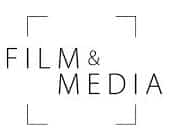
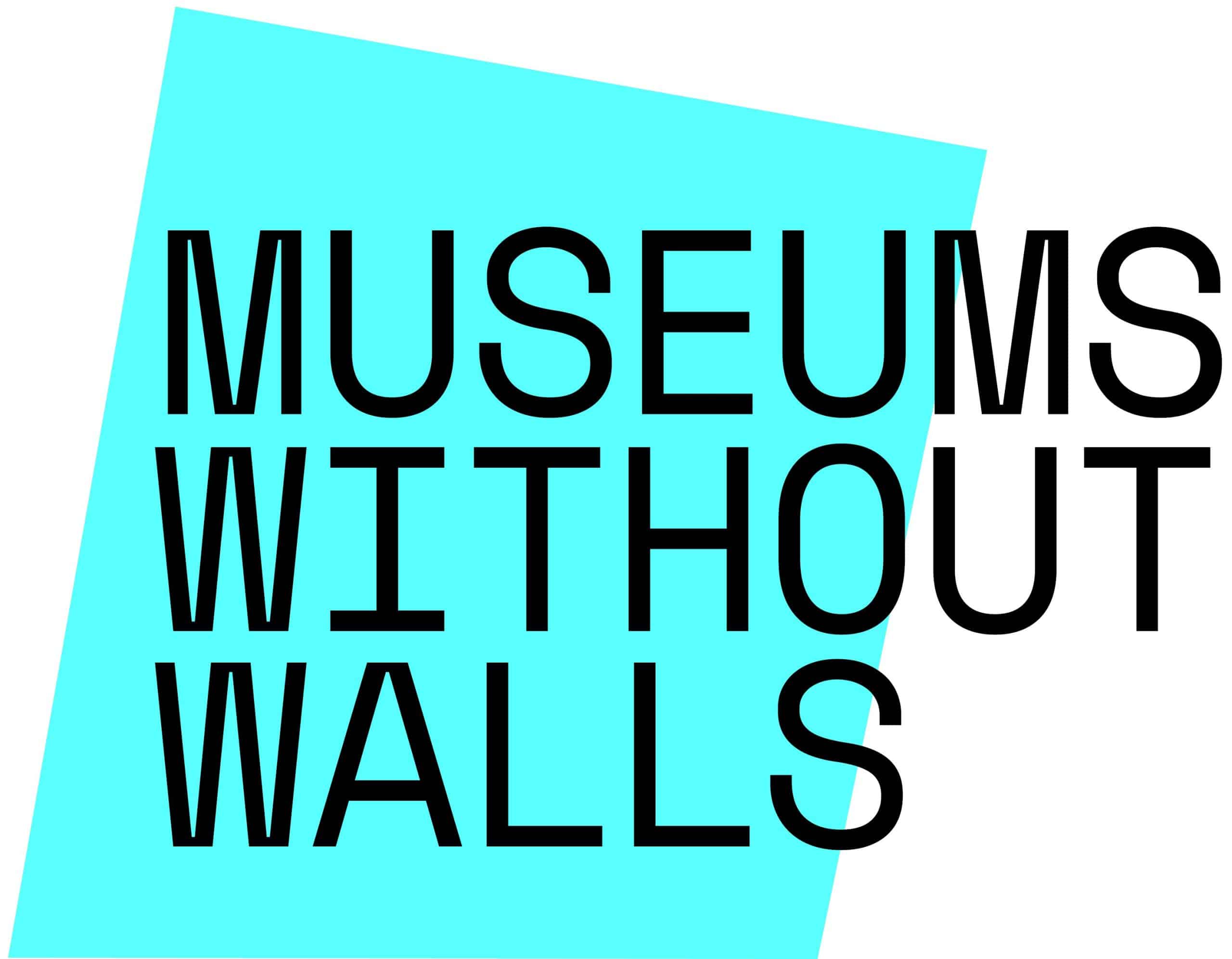

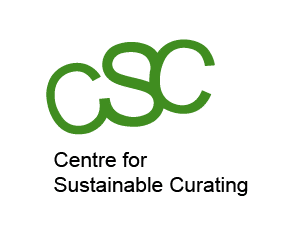

An Institute for Curatorial Inquiry is generously supported by the Ontario Arts Council (Arts Response Initiative), an agency of the Government of Ontario; the City of Kingston Arts Fund, Kingston Arts Council; and Queen’s University’s Bader Legacy Fund, Department of Film and Media, David Bain Memorial Fund, Frances K. Smith Talks in Canadian Art, Inclusive Community Fund, Robert Sutherland Visitorship and Brockington Visitorship.